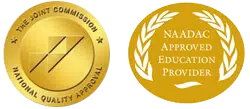Although it may seem practical to detox at home by simply weaning yourself off of drugs or alcohol, the health risks involved in the withdrawal process are often unpredictable and serious. Depending on how long a person has been abusing drugs and their tolerance level for the drug, the withdrawal symptoms associated with detoxing could be life-threatening.
In addition, research shows that at-home detox is the least effective method for beating an addiction. Most people who don’t transition into a treatment program after detoxing at home or completing a medically supervised detox will likely relapse and experience declining mental and physical health.
Relapsing Within the First 24 Hours
Withdrawing from heroin, cocaine, and alcohol basically traumatizes the brain. As tolerance builds to the psychoactive effects of drugs or alcohol, the brain gets used to having its reward center constantly activated. When an addict stops taking drugs, the brain rebels. By making the addict feel horribly sick, frightened, and depressed, the brain forces the addict to relapse.
Many addicts who attempt to detox at home are surprised at the severity of withdrawal symptoms. In fact, just decreasing your consumption of alcohol or doing one line of cocaine when you are used to snorting two lines can cause joint pain, nausea, vomiting, the “shakes”, and agitation. For long-time substance abusers, the potential for suffering seizures, respiratory distress, and coma during a home detox is real and should be taken seriously.
Home Detox Does Not Provide Therapy
People start abusing drugs or alcohol because they are trying to cope with emotional and mental health issues. Detoxing at home does nothing to address the underlying causes of addiction. Even if someone manages to complete a home detox, and can provide a clean urine sample, the source of their emotional pain has not received the therapeutic treatment necessary for resolving past traumas. Entering a medically supervised detox program at Baystate Recovery Center is the best and safest way to prepare for addiction therapy and counseling included in our personalized programs.
Environmental Triggers When Detoxing at Home
Another common reason why addicts try home detox instead of detoxing at a residential treatment center is fear of an unfamiliar environment. Although they want to stop using drugs or alcohol, the idea of being removed from an environment where they have immediate access to drug dealers or liquor stores is terrifying. Unfortunately, remaining in an environment where they are exposed to many triggers–dealers, other addicts, bars, and enablers–is the perfect situation in which relapse will likely occur. Residential treatment provided by Baystate Recovery Center takes place in a structured, therapeutic environment absent of triggers and the stress involved with resisting relapse.
What to Expect From a Medical Detox
If you or someone you know is thinking about detoxing at home, please call Baystate Recovery Center to learn more about our detoxification program. Doctors, nurses, and psychiatrists supervise our medical detox program which includes providing patients with medications to ease withdrawal symptoms and cravings. Patients also benefit from pre-treatment program intervention counseling during a medical detox to prepare for admission to a treatment program.
Call 855-887-6237 today to get started on recovering from an addiction.
Baystate Recovery Center, a clinically Infused 12-Step Treatment Center for Drug and Alcohol Addiction, was founded by two partners in addiction treatment services, John Checchi and Michael Wilson.



